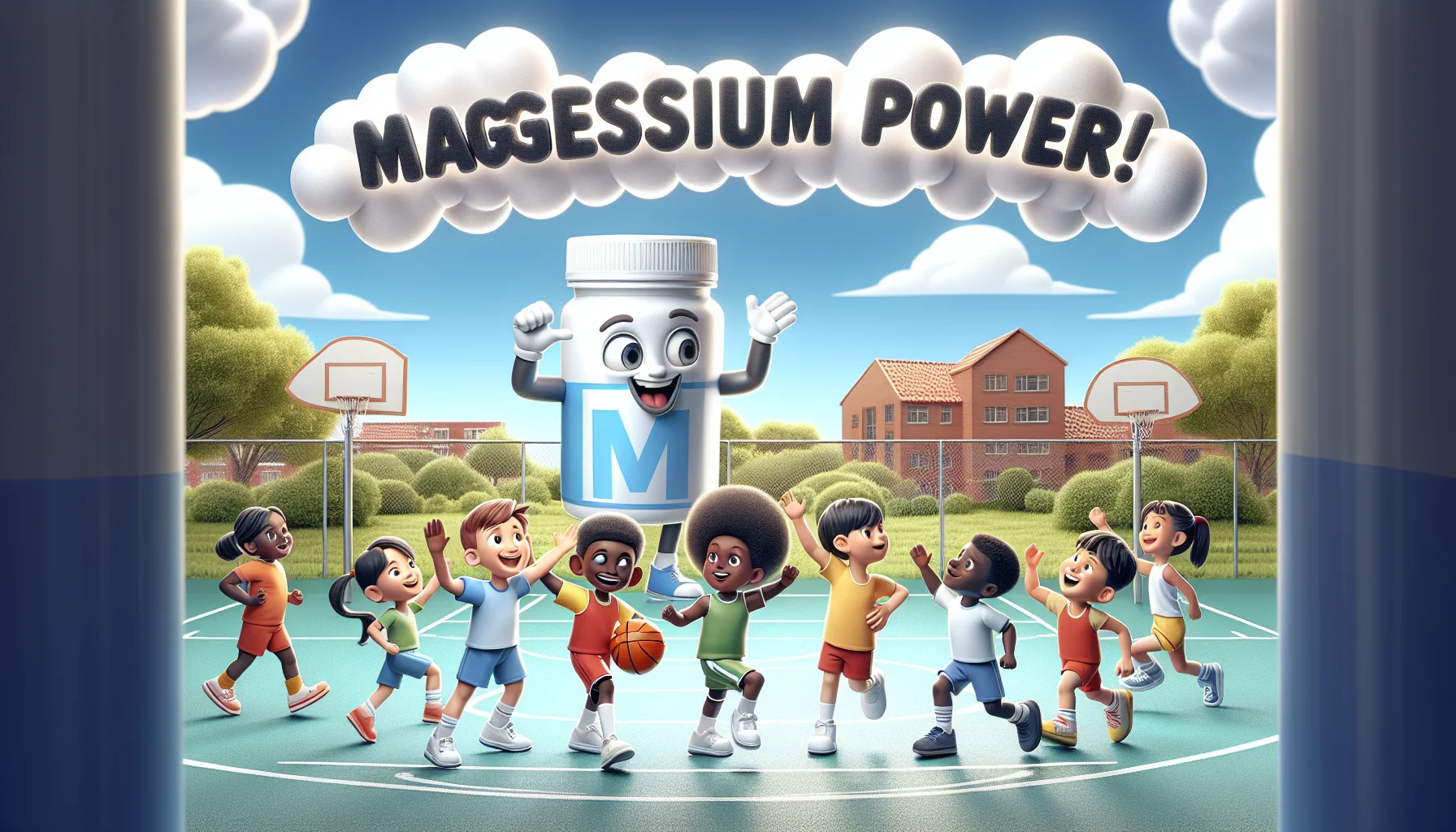Best magnesium for kids Quiz
Test Your Knowledge
Question of
The Importance of Magnesium for Kids in Sports
Magnesium plays a crucial role in the health and performance of kids involved in sports. This essential mineral supports over 300 biochemical reactions in the body, including muscle function, energy production, and the maintenance of nerve function, making it vital for young athletes. Magnesium helps in the synthesis of protein, which is key for muscle development and repair. It also aids in the regulation of muscle contractions and relaxation, reducing the risk of cramps and injuries. Furthermore, magnesium is important for bone health, which is critical for children and adolescents who are still growing. A sufficient intake of magnesium can help ensure that young athletes have the necessary energy, endurance, and strength to perform their best while supporting their overall growth and development.
The Role of Magnesium in a Child's Body
Magnesium plays a crucial role in a child's body, supporting over 300 biochemical reactions. It is vital for bone health, aiding in the development of a strong skeletal structure. Magnesium also contributes to muscle function, helping in relaxation and contraction, which is essential for physical activity. Additionally, it supports the nervous system, aiding in nerve transmission and the regulation of neurotransmitters, which can influence mood and sleep. A sufficient intake of magnesium is important for maintaining a healthy immune system, energy production, and heart rhythm, making it a key mineral for overall growth and development in children.
Symptoms of Magnesium Deficiency in Kids
Magnesium deficiency in children can manifest in various ways, significantly impacting their health and well-being. Common symptoms include muscle cramps and spasms, which are often the most noticeable signs. Kids may also experience chronic fatigue, making them less energetic than usual. Mood swings and irritability are common, as magnesium plays a crucial role in regulating neurotransmitter function. Additionally, difficulty concentrating and memory problems can occur, affecting their academic performance. In some cases, children might suffer from insomnia or other sleep disorders, further exacerbating fatigue and mood issues. It's important to recognize these symptoms early and consult a healthcare professional for proper diagnosis and treatment.
Recommended Daily Intake of Magnesium for Kids
The recommended daily intake of magnesium for children varies by age. For children 1-3 years old, it's suggested that they consume about 80 milligrams per day. For those aged 4-8 years, the recommendation increases to 130 milligrams per day. Kids between the ages of 9-13 should aim for 240 milligrams daily. As children grow, their magnesium needs change, reflecting their body's development and nutritional requirements.
Best Magnesium-Rich Foods for Kids
- Spinach
- Pumpkin seeds
- Yogurt or Kefir
- Almonds
- Black beans
- Avocado
- Banana
- Dark chocolate (in moderation)
Top 5 Magnesium Supplements for Kids
| Brand Name | Dosage | Price |
|---|---|---|
| Natural Vitality Kids Calm Multi | 142 mg per serving | $22.95 |
| ChildLife Essentials Magnesium with Zinc | 50 mg per serving | $16.99 |
| Renzo's Magnesium Gummies for Kids | 50 mg per serving | $19.99 |
| Zarbee's Naturals Children's Sleep with Melatonin + Magnesium | 1 mg Melatonin + 50 mg Magnesium per serving | $7.99 |
| Bluebonnet Super Earth Rainforest Animalz Calcium Magnesium & Vitamin D3 | 100 mg Calcium, 50 mg Magnesium, 200 IU Vitamin D3 per serving | $14.36 |
How to Incorporate More Magnesium into Your Child's Diet
To ensure your child gets enough magnesium, consider incorporating more magnesium-rich foods into their meals. Foods like spinach, nuts, seeds, whole grains, and fish are excellent sources. You can add spinach to smoothies or sandwiches for an easy boost. Nuts and seeds make great snacks or can be sprinkled over yogurt or cereal. Opt for whole grain options when choosing bread, pasta, or cereal. Including fish in your child's diet a couple of times a week can also increase their magnesium intake. Remember, a varied diet is key to covering all nutritional needs.
The Impact of Magnesium on Kids' Sports Performance
Magnesium plays a crucial role in enhancing a child's performance in sports by supporting a wide range of physiological processes. It aids in the production of energy, supports the development of healthy bones, and helps in the proper functioning of muscles. Magnesium also contributes to electrolyte balance, which is vital during physical activity as it helps in maintaining hydration, reducing cramps, and improving muscle function. Furthermore, adequate magnesium levels can improve sleep quality, which is essential for recovery and performance. Ensuring that children involved in sports consume enough magnesium can lead to significant improvements in their athletic performance and overall well-being.
Consulting with a Healthcare Professional
Before starting a child on magnesium supplements, it's crucial to consult with a healthcare professional. This step ensures that the supplementation is necessary and safe, considering the child's health condition and dietary needs. A healthcare professional can provide tailored advice and guidance, helping to avoid any potential adverse effects and interactions with other medications or conditions. Always prioritize professional healthcare advice to ensure the well-being and safety of your child.












